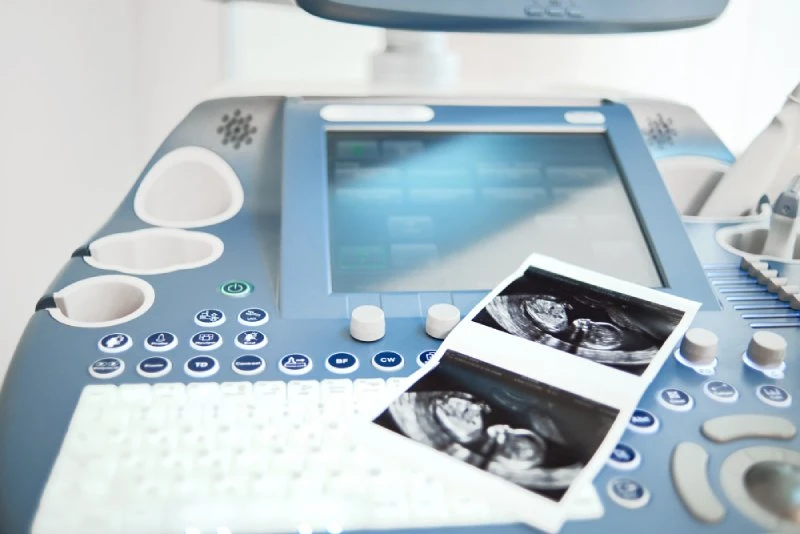It is indispensable for hopeful parents to appreciate the cost of prenatal testing. Choices range from rudimentary insurance-covered screenings to more widespread tests that come with extra budgets. When picking which tests to pursue through pregnancy, people can make well-informed decisions by captivating into account both the financial insinuations and the medical need of the test.
Prenatal genetic challenging plays a critical role in modern obstetric care, contribution expectant parents understandings into the health and expansion of their unborn child. This overview aims to highlight the implication of prenatal genetic testing in recognizing potential genetic disorders, chromosomal anomalies, and other fetal health concerns, sanctioning parents to make informed decisions around pregnancy management and interference options.
Overview of Prenatal Testing
Prenatal testing contains various screening and diagnostic actions intended at measuring the health and increase of the fetus during pregnancy. Here is a transitory overview of diverse categories of prenatal tests:
Ultrasound:
This non-invasive imaging technique uses sound waves to create images of the fetus in the womb. Ultrasounds can backing confirm pregnancy, assess fetal development and growth, notice structural abnormalities, and switch gestational phase.
Maternal Serum Screening:
Also known as, prenatal blood tests, these screenings measure specific substances in the mother’s blood to assess the risk of chromosomal abnormalities and neural tube defects in the fetus.
Non-Invasive Prenatal Testing (NIPT):
NIPT analyzes cell-free fetal DNA circulating in the mother’s bloodstream to screen for chromosomal abnormalities, such as Down syndrome (trisomy 21), Edwards syndrome (trisomy 18), and Patau syndrome (trisomy 13).
Chorionic Villus Sampling (CVS):
CVS is a diagnostic test that involves taking a small sample of cells from the placenta (chorionic villi) for genetic analysis. It can sense chromosomal irregularities, hereditary disorders, and unquestionable metabolic conditions. CVS is normally did between 10-13 weeks of pregnancy.
Amniocentesis:
This diagnostic procedure involves collecting a small sample of amniotic fluid surrounding the fetus for genetic testing. Amniocentesis can observe chromosomal irregularities, hereditary disorders, and neural tube defects. It is characteristically did amongst 15-20 weeks of pregnancy.
Cell-Free DNA Screening for Single Gene Disorders:
This specialized form of NIPT screens for specific single gene disorders, such as cystic fibrosis or sickle cell disease, by analyzing cell-free fetal DNA in the mother’s bloodstream.
Cost Factors in Prenatal Testing
The cost of prenatal testing can vary significantly based on several factors:
Type of Test:
Different prenatal tests have varying costs. Rudimentary screenings, such as ultrasound and nurturing serum screening, are generally a slighter amount expensive compared to more progressive diagnostic tests comparable non-invasive prenatal testing (NIPT), chorionic villus sampling (CVS), or amniocentesis, which might need specialized apparatus and know-how.
Location:
Introduction and Establishing Rapport:
The meeting typically begins with introductions and establishing a comfortable setting for open communication.
Family and Medical History:
The genetic counselor collects detailed information about the individual’s or couple’s personal and family medical history.
Discussion of Concerns and Goals:
The counselor encourages individuals to express their concerns, questions, and goals regarding genetic testing, pregnancy, or family planning. This may embrace discussing specific reasons for looking for genetic therapy, such as forward-thinking maternal age, past pregnancy complications, or family antiquity of genetic illnesses.
Explanation of Genetic Testing:
The counselor provides information about the specific genetic test(s) recommended based on the individual’s or couple’s medical history and concerns. This may embrace conversing the resolution of the test, how it is performed, possible dangers and benefits, and the precision of results.
Informed Consent:
Before proceeding with genetic testing, the counselor obtains informed consent from the individual or couple.
Interpretation of Test Results:
Once test results are available, the genetic counselor interprets and explains the findings to the individual or couple.
Emotional Support and Counseling:
Throughout the counseling session, the genetic counselor provides emotional support, empathy, and reassurance to individuals or couples coping with the emotional impact of genetic testing and potential implications for their family and future pregnancies.
Education and Resources:
The counselor offers educational materials, resources, and referrals to support services, including support groups, advocacy organizations, and medical specialists specializing in genetics, prenatal care, or reproductive health.
Follow-Up and Future Planning:
Depending on the outcome of genetic testing and individual needs, the counselor may schedule follow-up sessions to address ongoing concerns, provide additional information, or assist with future planning, such as family planning, reproductive options, or prenatal care.
Conclusion
Genetic counseling be there as a vital resource for persons and couples piloting genetic concerns, offering modified info, emotional support, and way throughout the decision-making procedure. By easing informed decisions about genetic challenging, pregnancy, and family planning, genetic counselors authorize individuals to take active steps toward their fitness and well-being. Seeking genetic therapy can provide clarity, support, and peace of mind, safeguarding that individuals are equipped to make knowledgeable choices that align with their standards and goalmouths.
Frequently Asked Questions
What is the next step if double marker test is positive?
If the Double Marker Test is optimistic, the next step characteristically involves genetic counseling. This meeting provides detailed info about the test results, possible implications, and obtainable follow-up options, serving expectant parents make informed decisions about additional diagnostic testing and pregnancy organization.
What if double marker test is high risk?
A high-risk importance on the Double Marker Test proposes an enlarged likelihood of chromosomal irregularities in the fetus. In such cases, extra diagnostic testing, such as amniocentesis or chorionic villus selection, is regularly suggested to confirm the findings and provide a decisive diagnosis.
What does it mean when double marker test is normal?
When the Double Marker Test revenues normal results, it designates that the measured markers (PAPP-A and hCG) are inside expected ranges, signifying a lower likelihood of chromosomal irregularities in the fetus. Though reassuring, normal results do not guarantee the nonappearance of all genetic circumstances or birth defects.
Is genetic Counselling recommended along with invasive testing for confirmation?
Genetic counseling is characteristically recommended together with invasive testing, such as amniocentesis or chorionic villus sample, for confirmation of chromosomal abnormalities noticed by the Double Marker Test. This therapy session provides complete information about the insinuations of test results, available diagnostic choices, and potential management plans, assisting expectant parents in making well-informed decisions about their pregnancy.
How can I prevent birth defects during pregnancy?
To stop birth defects during pregnancy, several events can be taken:
- Maintaining a strong lifestyle with balanced nutrition and regular workout.
- Avoiding harmful matters like alcohol, tobacco, and certain medicines.
- Ensuring satisfactory prenatal care and regular check-ups with healthcare workers.
- Experiencing optional prenatal screening and diagnostic tests for early discovery of any potential issues.
- Referring with a healthcare provider about any pre-existing medicinal conditions or family history of genetic complaints to assess potential risks and receive suitable guidance.
Recent Blogs:

NT Scan vs. Double Marker: Which is Right for You?
Posted byLifecareMay 11, 20240Tags: eeg
Posted inblog
Prenatal showings for chromosomal anomalies include the Double Marker Test and the NT scan. Although the Double Marker Test syndicates NT scan consequences with maternal blood investigation of PAPP-A and hCG levels, the NT scan procedures fluid at the fetus’s neck. Double Marker recovers accuracy by combining blood markers and ultrasound data to assistance with risk valuation. Once assessing the health of the mother and the foetus throughout pregnancy, prenatal screening tests are indispensable. The NT scan and Double Marker Test are binary imperative tests for recognizing chromosomal abnormalities in the increasing foetus among these. Significant the distinctions amid these tests Read More »

Mysteries of EEG: From Seizure Detection to the Power of Breathing Exercises
Posted byLifecareMay 4, 20240Tags: eeg
Posted inblog
Electroencephalography (EEG) is a method to record the electrical activity of the brain. It uses metal discs called electrodes that are placed on the scalp. To record the electrical activity in the brain. it sends signals to a computer that records the results. The electrical impulses in an EEG look like waves or lines. These lines allow doctors access to abnormal patterns. If there are abnormal pattern occurs then it leads to various health problems. For example, some of these abnormal patterns mean you have trauma, stroke, brain tumor, or seizures. Suppose you have partial seizures, spikes, and sharp waves Read More »

Decoding EEG: A Comprehensive Guide to Understanding Electroencephalography
Posted byLifecareMay 3, 20240Tags: 2d echo test
Posted inblog, Pregnancy Health
An electroencephalogram (EEG) test is used to diagnose epilepsy and check various seizures. EEG tests can also be beneficial to diagnose different health conditions like sleeping disorders, brain surgery, tumors, or paralysis. EEG can monitor your brain after a coma. It is a non-invasive test that works by picking the brain waves that are attached to the scalp. The article covers various aspects related to EEG; what is it? What are its benefits over another test, what are its limitations and considerations What is an EEG test? Electroencephalography (EEG) is a method to record the electrical activity of the brain. It uses Read More »

Sonography/Ultrasound Test Prices & Centers in Mumbai: 2024
Posted byLifecareApril 25, 2024Tags: 2d echo test
Posted inblog, Pregnancy Health
Bringing a child into your life is the happiest moment thus, ensuring that both baby and mother are healthy becomes vital. Sonography checks the baby’s development during pregnancy. Sonography or Ultrasonographic diagnosis is performed to obtain complete information about the baby’s overall development. Sonography is a scan that uses high-frequency sound waves to create real images of a baby’s internal parts. This process is also known as ultrasound or Ultrasonographic. It helps the doctor to examine internal organs, arteries, and tissues of the baby. Sonography helps to know the baby’s overall development. It is also helpful to know if the baby has Read More »

Unlock Your Gut Health: 2024 Guide to Microbiome Testing
Posted byLifecareApril 12, 2024Tags: 2d echo test
Posted inblog, Pregnancy Health
Have you known? The Human Gut is home to 3 million genes, and every genetic material is unique to us. Everybody has a unique microbe. If two people are identical twins, then it doesn’t mean they have the same microbes; they have different microbes. In the last few decades, DNA analysis has transformed the field of gut health testing. Now, we are keenly aware of the health benefits and various diseases and risks brought by the microorganisms in our guts. A Gut microbiome testing helps you know what microbes live in your gut and how they harm your body. After Read More »

Unveiling Your Heart’s Health: A Guide to 2D Echo Test
Posted byLifecareMarch 11, 2024Tags: 2d echo test
Posted inblog, Pregnancy Health
By producing a real-time image of the framework and function of the heart, a 2D Echo test, also related to as echocardiography, offers extensive wisdoms into your heart health. Using this non-invasive test, medical qualified can estimate the size, shape, and function of the heart’s chambers and valves additionally seeking for anomalies like chronic heart defects, valve troublesome, and weakening of the heart’s muscle. It also measures cardiac output, assesses blood flow patterns, and looks for any hints of heart harm or illness. What is a 2D Echo Test? A beyond surgery imaging technique used to estimate the structure and Read More »

